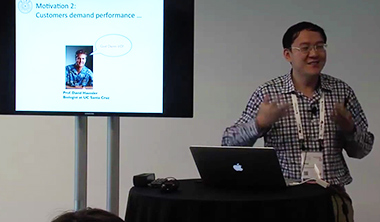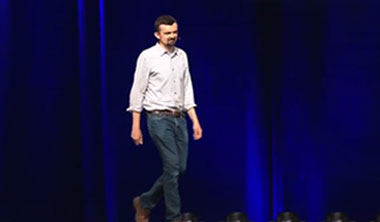The auto industry is projected to be the second largest generator of data by next year. One innovative manufacturer saw the opportunity to leverage massive amounts of data telematics produced by cars and drivers to plan new features and gain competitive advantage.

A Huge Need
Collect, store & analyze petabytes of data globally from millions of vehicle sensors, customers, dealers and social media.

A First Attempt
Commercial legacy appliance costing in excess of $1.2 Million could not handle the workload.

The Solution
$125K OpenStack setup scaled from POC to 10-rack system in 6 months, easily handling complex data analysis.




